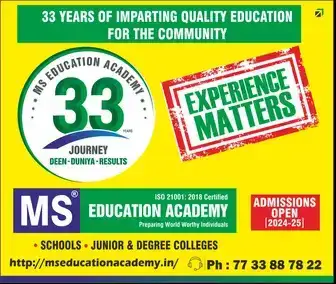
Hyderabad: When it is an Urdu programme there is bound to be a lavish display of language, literature and poetry. The bicentenary celebration of Urdu journalism held at the Maulana Azad National Urdu University (MANUU) here on Sunday, was no different. While the state of affairs of Urdu journalism was the subject of discussion, audience were, however, treated to a generous dose of Urdu couplets.
Khincho na kamanon ko, na talvar nikalo
Jab tope muqabil ho to akhbar nikalo
(Neither bow-arrow nor a sword you need
Publish a newspaper when faced with cannon)
But in the present times when one brings out a newspaper one need to have cannon as well. “These are anti-journalism times and the journalistic journey is dotted with many a pitfall”, remarked Shahid Lateef, Editor of Mumbai’s Inquilab Urdu daily.
Apart from the financial constraints faced by Urdu media, running a newspaper is not an easy task these days. Technology has provided a new platform in the shape of digital media which is less expensive and easier to operate even from a single room. But it should not be at the cost of quality, he said.
A large number of journalists from across the country are attending the three-day international conference on the “Urdu Media: Past, present and future”. The conference sponsored by MANUU’s Department of Mass Communication and Journalism aims to discuss the challenges and prospects facing Urdu media and the new avenues opened up by digital platform in the next two days.
Foreign journalist, Dr. Waiel S H Awwad was the chief guest.
Striking a positive note, eminent journalist and lyricist, Hasan Kamal, said while the past of Urdu media was very glorious, its present is a bit bleak but its future is very bright. Nearly 75 percent of the print media is finished today. Digital media is the order of the day, and it holds out hope for not just Urdu but other languages too. Some persons are, however, bent upon sounding the death knell of Urdu. But the fact is the language is far from dead. It is very much alive and kicking in Hindustani, which is a mixture of both Hindi and Urdu.
Hasan Kamal, who penned such hit songs like ‘Dil ke armaan aansuon mein bah gaye’, said Bollywood couldn’t survive without Urdu.
Senior journalist, Shakeel Hasaan Shamsi, advised students to take up journalism only if they have a passion for it since it is a challenging profession. Their motive should be to serve people not to just make money. He recited a couplet to drive home the problems facing the profession these days.
Na to dault hai na deenar wo dirham rakhte hain
Ham to itne mein hi kush hain ke qalam rakhte hain
Bus unhi longon ke haton mein qalm jachta hai
Apne seene mein jo insanon ka gham rakhte hain
Le ke jata hai qalam dar-o-rasan tak aksar
Wo qalam phenk dein jo hausla kam rakhte hain
Kamna Prasad, founder Jashne Bahar Trust, recalled how the first Urdu newspaper, Jam-e-Jahanuma, was published from Kolkata by Harihar Dutta, a Hindu. The founder of the first Hindi newspaper was also a Hindu. But today we are busy separating ‘sheer and shakar’, she remarked to point out the wedge being driven between the Hindu and Muslim communities. Continuing in the same vein, Prof. Ehtesham Ahmed Khan, Dean, SMCJ, said Urdu journalism was not related to any particular community.
Veteran journalist and former MP, Swapna Das Gupta, said the influence of Urdu is far greater than its formal recognition. He stressed the need for preserving the literary culture of Urdu and also the journalism linked with the language. The Urdu University, he said, is well placed to deal with these twin issues.
Prof. Sanjay Dwiwedi, director general, Indian Institute of Mass Communication, Dr. Abdul Qadeer of Shaheen Group of Schools, also spoke.
Prof Syed Ainul Hasan, MANUU Vice Chancellor, who presided, strongly opposed the suggestion for adoption of Devnagari script for Urdu and said a script is the essence of a language. “If you give up your script you give up your language”, he said.

